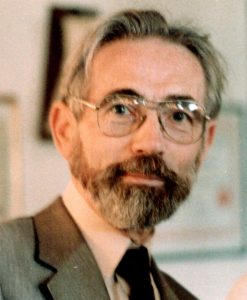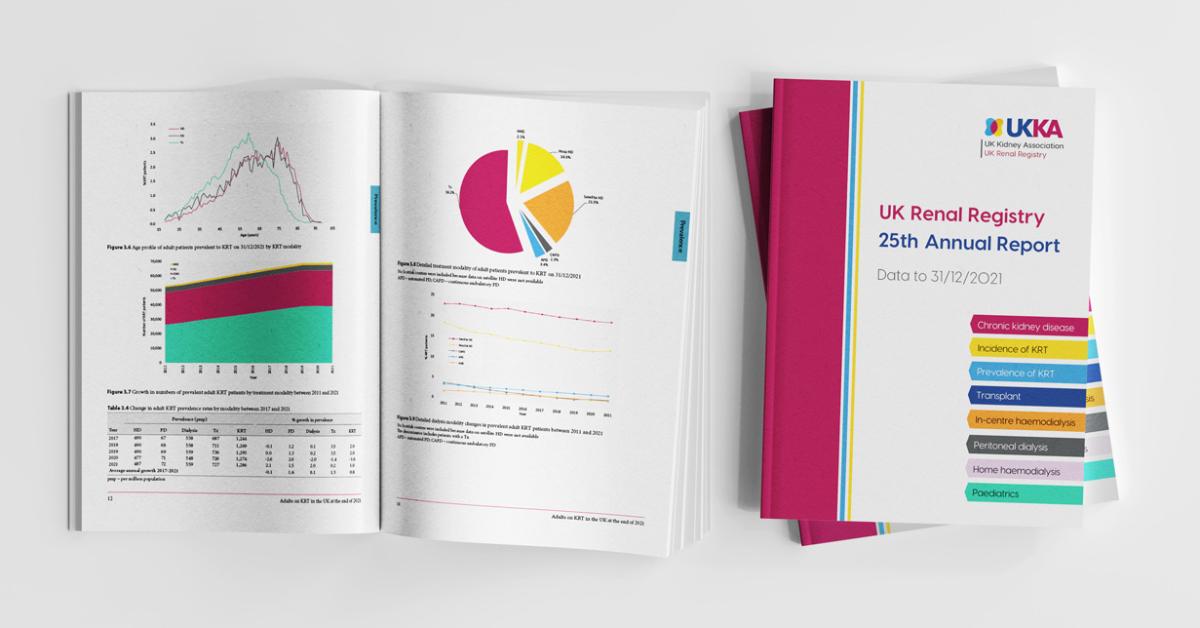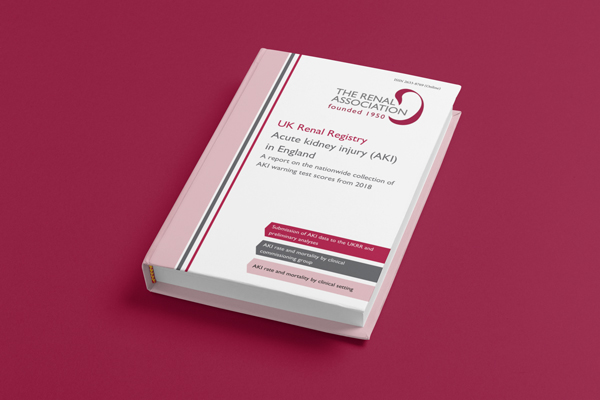
David Nichol Sharp Kerr was born in Hackney on 27th December 1927. He was educated at George Watson’s Boys School in Edinburgh, and studied medicine at the University of Edinburgh qualifying MB ChB with Honours in 1951.
After initial junior doctor appointments in Edinburgh he went in 1952 to the University of Wisconsin and studied for an MSc in Anatomy. From 1953-1955 he undertook national service as a surgeon-lieutenant in the Royal Naval Volunteer Reserve. He returned to the Department of Medicine in Edinburgh before being appointed as a registrar in medicine at the Hammersmith Hospital. Whilst training in hepatology he was encouraged by Sheila Sherlock to move to Newcastle where George Smart was establishing a dialysis unit. David was told that he would be in charge of the renal unit in his spare time. Thus started David’s career in nephrology.
He was first appointed First Assistant in Medicine in the Medical School, King’s College, University of Durham in 1959 and became Lecturer in Medicine at Newcastle University in 1961. He was promoted to Senior Lecturer in 1963 and subsequently was appointed to a Personal Chair in Medicine in 1968. He was appointed Professor of Medicine and Head of the Department of Medicine in 1971. He stayed in this post until his departure to the Dean’s post at the Royal Postgraduate Medical School, London in 1983.
In the 24 years that he spent in Newcastle he established an academic renal unit with an international reputation. The breadth of the research that he fostered in this time is evidenced by the range of publications that came out of the unit. Not surprisingly he was particularly interested in the technical aspects of dialysis and its complications. This lead to his seminal observations on the role of aluminium derived from the water supply in the development of bone and brain disease in dialysis patients. David instilled the importance of clinical observation in research into all of those who trained in nephrology in Newcastle during this period. This led to a series of studies examining the natural history of conditions including renal bone disease, reflux nephropathy, and hypertension as well early observations in renal transplantation. Whilst he was primarily a clinical researcher he recognised the importance of applied basic science and was an early champion for the use of molecular genetics in clinical research.
David established Newcastle as one of the best places in the UK to train in nephrology. This legacy is still to be seen in the consultant staff of renal units throughout the UK. In addition to this he had a passion for training clinicians from overseas particularly from underdeveloped countries. A steady stream of overseas fellows were to be found in that period in his clinics and laboratory. Not only interested in their academic and clinical training David took great personal responsibility for their pastoral care. As a result he is held in great personal affection by nephrologists spread across the globe.
He left Newcastle in 1983 to take up the post of Dean of the Royal Postgraduate Medical School which he held until 1991. During this time David steadfastly and calmly steered the School through a period of financial and administrative turbulence. Despite the huge administrative burden of the Dean’s post David still found time to remain true to his clinical and academic calling. He made a valuable contribution to the clinical service in nephrology, and always found time to provide wise advice to colleagues and trainees. He also established a Diploma in Nephrology which was extremely popular with overseas trainees, many of whom went on to successful careers in their home countries. Not surprisingly his portrait as Dean shows him surrounded by a group of international students rather than in a formal solitary pose.
David’s esteem in the field of nephrology was marked by numerous prestigious invited lectures. He was a staunch supporter of European nephrology and was one of the three founding members of the European Dialysis and Transplantation Association in 1963. He was the first Editor of the Proceedings of EDTA and was made an Honorary Member of that Association in 1986. He was President of the Renal Association from 1980 to 1983. He continued late in his life to support many aspects of nephrology in the UK, notably as President of Kidney Research UK from 2000-02.
He had a long association with the Royal College of Physicians which he served with distinction. He gave the Goulstonian lecture in 1968, and the Lumleian lecture in 1983. He served the College as censor 1982-84, senior censor 1990-91, and was editor of the College Journal from 1994-98. He was made CBE in 1991.
David was the nicest of men, with remarkable modesty despite his many achievements. Underpinning and at the centre of David’s life was his Christian faith; these values were clear to see to all who were privileged to have known David during his life.
David is survived by Eleanor, his wife of 53 years, three children and four grandchildren.



